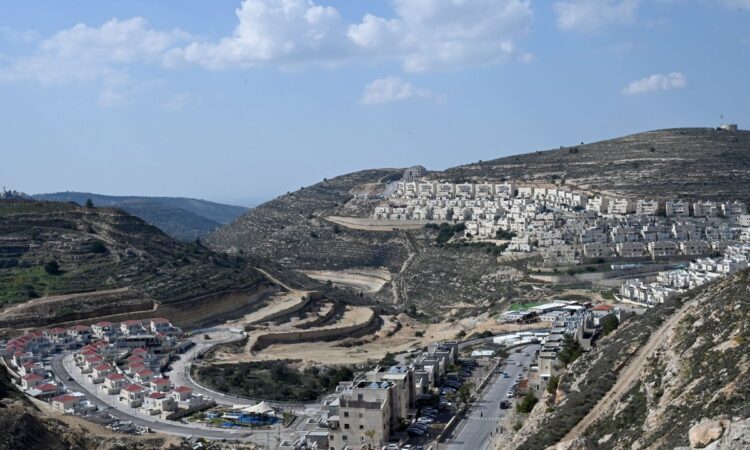
The Biden administration on Thursday announced sanctions targeting violence that has exploded in the West Bank amid Israel’s war in Gaza. File Photo by Debbie Hill/ UPI
March 15 (UPI) — The United States sanctioned three extremist Israeli West Bank settlers and two associated outposts on Thursday, as the Biden administration escalates its criticism of the Israeli government over its refusal to crack down on violence that has exploded in the illegally occupied region.
Israel’s occupation of the Palestinian territory of the West Bank and the establishment of settlements are widely viewed as illegal under international law, and White House officials have said that President Joe Biden has repeatedly raised the issue of settler violence with Israeli Prime Minister Benjamin Netanyahu going back as far as the summer of 2022.
Advertising
But settler violence has exploded in the occupied West Bank amid Israel’s war against Hamas in Gaza, and the Biden administration has responded to the inaction of the Netanyahu government by unveiling entry bans for extremist settlers in December, then announcing new sanctioning powers early last month.
While the Biden administration has previously used its new sanction powers to blacklist extremist settlers once before, Thursday marks the first time it hit entire settlements.
“We have made clear for some time that we wanted to see Israel take additional action to, number one, stop extremist settler violence and, number two, hold those responsible for it accountable. And we made clear that if we didn’t see sufficient steps, we were ready to take action,” State Department spokesman Matthew Miller told said during a press briefing on Thursday.
The sanctions announced Thursday target Zvi Bar Yosef and his Zvis Farm and Moshe Sharvit and his Moshes Farm as well as Neriya Ben Pazi.
Yosef is accused of repeatedly engaging in violence against Palestinians in the West Bank, according to the State Department, which said he uses his Zvis Farm as a base from which he perpetrates that violence, including preventing local Palestinian farmers from accessing and using their lands.
The State Department accused Sharvit of repeatedly harassing, threatening and attacking Palestinian civilians and Israeli human rights defenders near the outpost he founded.
In October, Sharvit used guns to threaten the residents of the Palestinian village of Ein Shibli to leave their homes, forcing up to 100 of them to flee the village in fear of their lives, according to State Department officials.
Like Yosef, Sharvit is accused of using his farm as a base to threaten Palestinians.
The State Department accused Ben Pazi of expelling Palestinian shepherds from hundreds of acres of land and in August of attacking Palestinians near the village of Wadi as-Seeq.
Miller told reporters the sanctions will block any property or accounts they have in the United States while barring others from doing business with them out of fear of being blacklisted himself.
He added that after they sanctioned four settlers last month, Israeli banks froze their accounts.
“And I will just say this is an area where we are going to continue to remain vigilant. And if additional actions are appropriate, we will not hesitate to take them,” Miller said.
According to Peace Now, a liberal Israel nonprofit organization, the occupied West Bank experienced an “unprecedented surge in settlement activities” during the first three months of Israel’s war, which began Oct. 7.
In its report published in January, it said a record nine new outposts were established, 18 roads were paved and settlers evacuated from the Amona outpost under court order returned.





